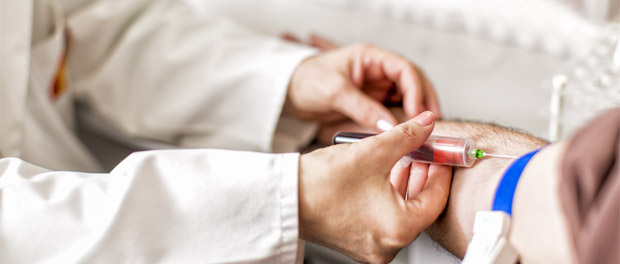
If a woman could get a blood test telling her whether or not she’s likely to develop breast cancer, preventative measures could be taken, doctors could monitor her health, and she could explore potential options even before the cancer has started. A blood test like this could be possible as a result of new research by University College London (UCL) scientists, led by Professor Martin Widschwendter, head of the UCL Department of Women’s Cancer.
The research team, whose study was recently published in Genome Medicine, discovered an epigenetic signature by analyzing the blood of women who inherited a genetic mutation of the BRCA1 gene, predisposing them to breast cancer. Surprisingly, this same epigenetic signature was found in the blood of women who also developed breast cancer but did not have the BRCA1-mutation.
This particular inherited mutation causes at least 10% of breast cancers. The cause for the remaining 90% of breast cancers in those without the BRCA-1 mutation continues to be a mystery. It is clear, however, that gene mutations are not the only cause for developing diseases. The epigenetic mechanisms controlling the expression of genes are entering the spotlight in terms of the progression of diseases, especially cancer, and may hold promise as potential markers for the likelihood of getting cancer.
The UCL researchers analyzed blood samples of women in two cohorts in the UK (MRC National Survey of Health and Development and the UK Collaborative Trial of Ovarian Cancer Screening), carefully looking at the DNA methylation signature. The samples were collected several years before the women actually developed breast cancer. They compared this epigenetic signature in both groups and discovered that women who went on to develop non-hereditary cancers had the same DNA methylation signature as those who developed hereditary cancer.
Professor Martin Widschwendter said, “We identified an epigenetic signature in women with a mutated BRCA1 gene that was linked to increased cancer risk and lower survival rates. Surprisingly, we found the same signature in large cohorts of women without the BRCA1 mutation and it was able to predict breast cancer risk several years before diagnosis.”
The scientists think this epigenetic signature is consistent with other evidence that supports that changes in the epigenome of immune cells are crucial to cancer progression. The immune system may be unable to prevent breast cancer from forming because the signature may be silencing genes in immune cells. The question about whether or not the epigenetic signature plays a part in the actual development of cancer or if it is just an indicator of the risk of getting breast cancer remains to be answered. According to UCL News, “Work is now proceeding on using these findings in the clinical setting.”
Professor Widschwendter said, “The data is encouraging since it shows the potential of a blood based epigenetic test to identify breast cancer risk in women without known predisposing genetic mutations.”
Source: Learn all about it and read more about their findings here: A BRCA1-mutation associated DNA methylation signature in blood cells predicts sporadic breast cancer incidence and survival. Shahzia Anjum, Evangelia-Ourania Fourkala, Michal Zikan, Andrew Wong, Aleksandra Gentry-Maharaj, Allison Jones, Rebecca Hardy, David Cibula, Diana Kuh, Ian J Jacobs, Andrew E Teschendorff, Usha Menon, Martin Widschwendter.
References: UCL (University College London) News. New test predicts the risk of non-hereditary breast cancer. June 2014.


